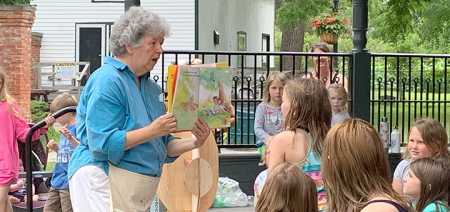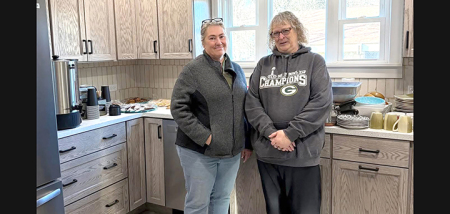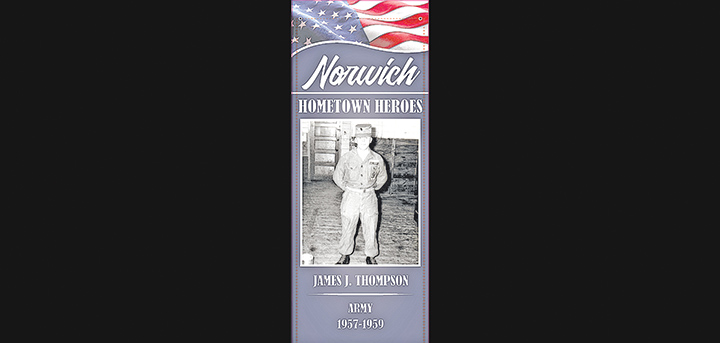What Is It Like To Learn A New Language?
Published:
November 18th, 2021
By:
Sarah Genter

Have you ever considered learning a new language? It can be pretty intimidating at first.
I mean, think about how many words you know in English. When you learn a new language you have to learn all of those words, plus the nuances of the language such as verb conjugations, compound prepositions, pronunciation, and more.
It’s easy to get overwhelmed by it all. Plus, it’s hard to come to terms with the fact that learning an entire language from scratch is going to take a lot of time. This isn’t something you do within a few months!
In my case, my adventure in language learning began in March of 2020. My husband Dustin had gotten me an Ancestry DNA kit for Christmas a few months prior, and after getting my results I became really interested in learning about my heritage. If Ancestry is to be believed, I am exactly one-third Italian, which is the largest percentage in my results. So, I figured that was a good place to start!
Impulsively, I downloaded the Duolingo app and jumped right in to learning the language. I have to say, it’s a pretty great tool. The lessons only took five to ten minutes each, which was perfect for my short attention span. What’s more, the lessons had a mix of reading, hearing, speaking, and writing the language, so all your bases are covered.
Of course, my interest in learning Italian waned after a few months. I’d still hop on the app here and there, but I wasn’t using it daily anymore, so I didn’t progress very far.
But, after starting college in January I learned I'd need to take a foreign language. So of course I registered for Italian, and began the class this September.
We began with the basics: how to introduce yourself, ask someone their name, greetings and farewells, numbers, etc. I had a tricky time those first few weeks, because I was itching to get into speaking full sentences and having conversations in Italian. But, I was also extremely overwhelmed.
Again, there are so many facets to a language. There’s so many rules, plus exceptions to those rules, conjugations, sentence structure, and so much more. When you look at it as a whole, it feels like learning it all, or even enough to get by, would be impossible. But when you finally surrender yourself to the process and move at a steady pace, things begin to open up.
I began to accept that it would be a years-long process to achieve the level of fluency I desired, that would extend long past my college class. I began to shift my mind from learning as much as I can, as fast as I can, to learning at the pace of the course, and at a pace where I would actually retain what I was learning.
Once I made that mental change, it was like the stars aligned. Within a few weeks I could introduce myself, describe myself, ask others questions about themselves, and talk about some of the things around me. It was exhilarating!
But, of course, what goes up must come down. My learning process thus far has not been without hiccups. To be blunt, some parts of a language just don’t make any sense! For example, Italian prepositions.
Several Italian prepositions mean the same thing, but in different contexts. Some of them apply to specific situations, but there's no identifiable reason why. You just have to memorize them. I had a really hard time with these, and still do sometimes. I’m only a little embarrassed to admit I often have to check Google Translate to make sure I’m using the correct preposition!
After clearing that hurdle, I quickly found myself in an even worse nightmare with compound prepositions. The Italian prepositions (a, da, di, in, and su) can be combined with the Italian words for “the” (il, lo, l’, la, i, gli, and le) to form compounds, which are completely different words like alla, dello, sulla, nei, agli, and more. Are you confused yet? Me too!
When learning a new language, there will inevitably be things you just can’t quite wrap your head around. Language is complicated! The important part is that you keep trying. I have definitely been tempted to throw in the towel on prepositions and compounds. But if I do that I won’t learn anything, and I certainly won’t reach the goals I have set for myself.
Another factor in learning Italian is the differences between speaking, hearing, reading, and writing the language. Yes, they are all the same words, but hearing a word and seeing it are two entirely different things!
I’m a very visual learner so, naturally, reading Italian is much easier for me than hearing it. My professor will ask me a question in Italian, and my mind goes blank.
Speaking is iffy. I’ll often practice whatever I can remember by speaking it out loud as I go about my day. Some days, I can rattle off complete sentences with ease: “I write for the newspaper” easily translates to “Io scrivo per il giornale.”
Even further, there are sounds in Italian that we don't have in English. For example, "gli" is not pronounced like "glee." Trying to say it is tricky, and if it's spoken in a sentence, it can be hard to distinguish from other words. It's just another quirky piece of the process you have to get used to.
Then, some days, the puzzle pieces just won’t fit: Does “maggiore” mean older or bigger? How do I conjugate “uscire” again? I knew how to do it yesterday!
When my class meets for our weekly Zoom calls, my professor will ask each person how they are. There have been days where I’ve repeated what I’m going to say over and over in my head. But, when I go to say “Ho sonno, ma ancora buono!” (I’m sleepy, but still good!) I stumble over my words, start and stop, or mispronounce things.
Learning a language is not a perfect process. You will not always feel confident, you will not always understand right away. But that’s part of the fun! Those struggles only lead to greater triumphs.
I will say that, despite the challenges, I feel incredibly proud of myself. I have come much farther than I expected, retained more than I thought I would, and I approach each day with the same sense of wonder and excitement I had on day one.
Each day brings a new milestone. Some days are little victories, like remembering the meaning of a word that was giving me trouble, or finally memorizing an irregular conjugation. There is nothing cooler than looking at your kitchen table, and the first word that pops into your head is "tavolo."
Other days are bigger accomplishments. I still remember the first time I read through a paragraph in Italian, and at the end I realized I had comprehended it all, without having to double check any of the words.
Another cool thing, I even had my first dream in Italian! The dream was that everyone around me was speaking Italian and I couldn’t understand them, but they were Italian words nonetheless! I’m still counting it as a milestone.
Additionally, learning the language has sparked within me a deeper interest in Italian culture. I now have a list of Italian recipes I want to try, a better understanding of what life in Italy is like, and I even looked deeper into my own lineage. According to Ancestry, (and if I’m interpreting the information correctly!) it is most likely that my ancestors hailed from the Umbria and Lazio regions of Italy. How cool is that?
Overall, this process has been so much more to me than just memorizing words and rules and conjugations. It has truly connected me to my heritage, awakened a curiosity I didn’t know I had, and given me the foundational knowledge for what could transform into a pretty neat skill.
So, have you ever considered learning a new language? If not, maybe now you will! You don’t have to start learning with the end goal of being fluent, of course. Even just taking the time to learn some words or phrases with an app like Duolingo is fun, and good mental exercise. And, who knows, you may even find yourself curious to learn more.
Arrivederci per ora, grazie per aver letto!
(Goodbye for now, thanks for reading!)
Author: Sarah Genter - More From This Author
Comments








